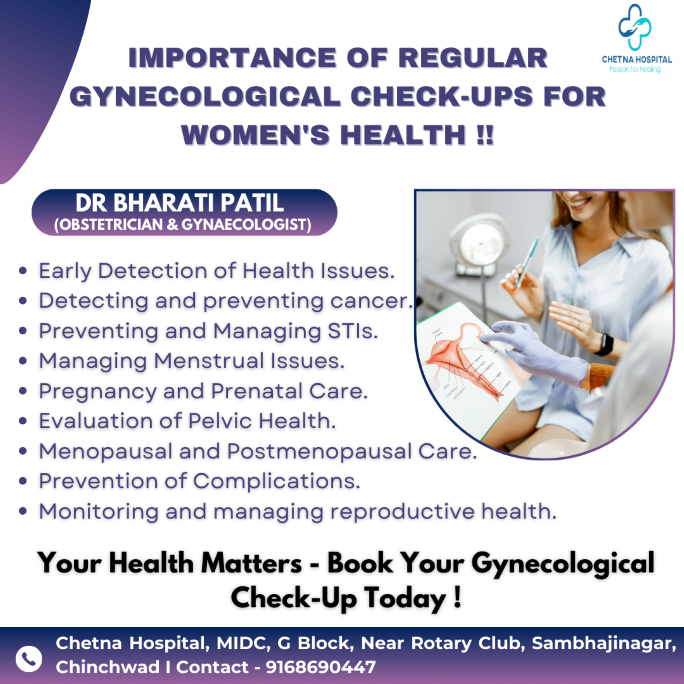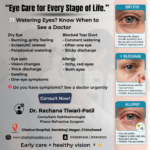Women’s health encompasses a wide range of physical, emotional, and hormonal factors that affect their well-being at different life stages. From the onset of menstruation to pregnancy, menopause, and beyond, each phase presents unique challenges. Amid this dynamic landscape, regular gynecological check-ups serve as a cornerstone for maintaining optimal health. These check-ups not only help diagnose and treat conditions but also provide women with the knowledge and tools to make informed decisions about their health.
Why Are Gynecological Check-ups Necessary?
Many women often visit a gynecologist only when faced with a pressing issue, such as abnormal periods, pelvic pain, or suspected pregnancy. While addressing acute concerns is important, preventive care through regular check-ups is equally vital. Here’s why:
- Early Detection of Health Issues
One of the primary reasons for regular visits is the early detection of conditions such as cervical cancer, ovarian cysts, or sexually transmitted infections (STIs). Routine tests like Pap smears can identify precancerous changes in cervical cells before they develop into cancer, significantly improving outcomes. - Management of Menstrual Health
Irregular, heavy, or painful periods are often dismissed as a normal part of life. However, they can indicate underlying conditions like polycystic ovary syndrome (PCOS), fibroids, or hormonal imbalances. Regular gynecological visits can help address these issues and improve quality of life. - Reproductive Health and Family Planning
Whether you’re planning a family or not, gynecologists play a crucial role in guiding women through contraception options, fertility concerns, and pre-pregnancy health optimization. They can recommend suitable methods of contraception and provide advice on conception when ready. - Menopause and Beyond
As women approach menopause, they experience hormonal fluctuations that can lead to hot flashes, mood swings, and bone density loss. Gynecologists provide guidance on managing these symptoms and preventing complications like osteoporosis. - Mental and Emotional Well-being
Women’s health is intricately linked to their mental and emotional states. Issues like postpartum depression, sexual health concerns, or the stress of managing multiple roles can be discussed with a gynecologist, who may recommend appropriate interventions or therapies.
What Happens During a Gynecological Check-up?
A gynecological check-up involves a range of assessments, tailored to a woman’s age, medical history, and specific concerns. Here’s an overview of what you can expect:
- Medical History Discussion
Your doctor will ask about your medical history, menstrual cycle, sexual activity, lifestyle, and any symptoms you may be experiencing. This conversation helps them tailor their advice and identify risk factors. - Physical Examination
A general physical exam may include checking your weight, blood pressure, and overall health. - Pelvic Exam
This involves examining the reproductive organs to detect abnormalities such as cysts, infections, or fibroids. - Breast Examination
A manual breast exam may be conducted to check for lumps or other signs of breast cancer. Your gynecologist may also recommend mammograms depending on your age and risk factors. - Screening Tests
- Pap Smear: A simple test to detect cervical cancer or precancerous changes.
- HPV Test: To identify the presence of high-risk human papillomavirus strains.
- STI Screening: If necessary, tests for infections like chlamydia, gonorrhea, or HIV may be conducted.
- Counseling and Guidance
Your gynecologist can provide personalized advice on birth control, pregnancy planning, managing menopause, and maintaining overall health.
How Often Should You See a Gynecologist?
The frequency of visits depends on your age, health status, and medical history.
- Adolescents (13–18 years): An initial visit to discuss menstrual health, sexual health, and HPV vaccination is recommended.
- Women in Their 20s and 30s: Annual check-ups, including Pap smears every 3 years (or as advised).
- Women in Their 40s and Beyond: Regular visits for managing menopause and screening for conditions like osteoporosis and breast cancer.
Breaking the Myths Around Gynecological Visits
Many women avoid visiting a gynecologist due to myths, misconceptions, or fear of discomfort. Let’s debunk some common myths:
- “I don’t need to visit unless I have symptoms.”
Preventive care is about catching potential issues early, often before symptoms arise. - “I’m too young to see a gynecologist.”
Adolescent girls can benefit from discussions about menstrual health, safe sex, and vaccinations. - “The tests are painful.”
While some procedures may cause mild discomfort, they are quick and essential for your health.
The Role of Lifestyle in Women’s Health
Gynecological health isn’t just about check-ups; it’s also influenced by your daily habits. Here’s how you can take proactive steps:
- Maintain a Balanced Diet
Foods rich in vitamins, minerals, and antioxidants promote hormonal balance and reproductive health. - Exercise Regularly
Physical activity improves blood circulation, reduces stress, and helps maintain a healthy weight, all of which are beneficial for gynecological health. - Practice Safe Sex
Using protection reduces the risk of STIs and unplanned pregnancies. - Stay Informed
Knowledge is power. Stay updated on vaccines, screenings, and lifestyle changes that can enhance your health.
When to Seek Immediate Help
While regular check-ups are crucial, certain symptoms warrant immediate attention:
- Severe pelvic or abdominal pain
- Heavy, prolonged, or irregular bleeding
- Unusual vaginal discharge or odor
- Pain during intercourse
- Any changes in the breast, such as lumps or discharge
Empowering Women Through Education and Awareness
Healthcare isn’t just about treatment—it’s about empowerment. Gynecologists play a pivotal role in educating women about their bodies, enabling them to make informed decisions. By normalizing regular check-ups and open communication, we can dismantle the stigma surrounding women’s health issues.
Conclusion
Regular gynecological check-ups are more than just a medical routine—they are a proactive step toward a healthier and happier life. These visits ensure that you’re not just addressing problems but also preventing them. They empower you with the knowledge to understand your body, make informed choices, and take charge of your health.
Don’t wait for symptoms to show up. Make your health a priority. Schedule your gynecological check-up today—it’s an investment in yourself, your future, and your well-being.
For Consultation Contact us on 9168690447
Website –
www.chetnahospital.co.in
Address – Chetna Hospital, Sambhajinagar, MIDC, G Block, Near Rotary Club, Chinchwad 411019
.
.
.
#hospital#pune#pcmc#chinchwad#health#healthcare#gynaecologist#femalegynaecologist#gynaecologistappointment#gynac#gynaecologistdoctor#gynaecologisthospital#goodgynaecologist#gynaecologistspecialist.













